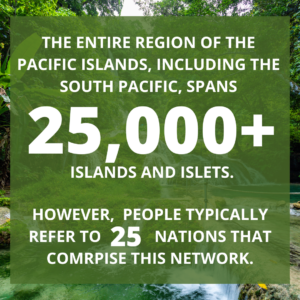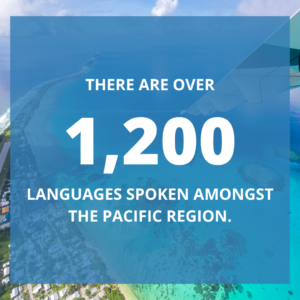Embracing the South Pacific Frontier: A New Direction for Learning Abroad
In the dynamic landscape of international education, the South Pacific emerges as an intriguing frontier for the future of Australian Learning Abroad. With its diverse cultures, stunning landscapes, and burgeoning academic opportunities, this region beckons educators and students alike to explore and engage in transformative learning experiences.
 Unveiling the Potential
Unveiling the Potential
The South Pacific region offers a unique blend of traditional wisdom and contemporary education. According to recent data from the Australian Government’s Department of Education, Skills and Employment, interest in the South Pacific for learning abroad has surged by 20% in the past five years. This upward trajectory underscores the growing recognition of the region’s potential as a hub for academic and cultural immersion. Furthermore, Australia’s commitment to education in the Pacific is evident, with a substantial investment of $247.5 million in 2021-22 towards education and employment pathways in the region.
Diverse Academic Offerings
Universities across the South Pacific have been proactive in expanding their academic offerings to cater to the needs of international students. From marine biology research to Indigenous studies programs and more, the region presents a plethora of academic avenues waiting to be explored. Moreover, partnerships between Australian universities and institutions in the South Pacific are stronger than ever, to facilitate seamless credit transfers, ensuring that students can leverage their overseas experiences to enhance their academic pursuits back home.
 Cultural Immersion and Global Citizenship
Cultural Immersion and Global Citizenship
Beyond academics, learning abroad in the South Pacific fosters cultural immersion and global citizenship. Engaging with Indigenous communities, participating in traditional ceremonies, and learning local languages provide students with invaluable insights into diverse worldviews and ways of life. From the Tongans, Māori People, and more, such Indigenous community experiences cultivate empathy, cross-cultural understanding, and a sense of responsibility towards global issues—an essential aspect of 21st-century education.
Sustainability and Environmental Stewardship
In Australia, recent findings from Griffith University’s Climate Action Beacon reveal a significant shift in attitudes towards climate change. Just a decade ago, only 34% of Australians expressed concern, but by 2021, this figure surged to 72%, firmly establishing climate change as a mainstream issue. Concurrently, there has been a notable increase in student involvement in sustainability courses and environmental projects across university campuses nationwide, indicating a growing interest and awareness among Australian university students in sustainability and conservation endeavors.
Meanwhile, the South Pacific emerges as a beacon of sustainability and environmental responsibility, making it an ideal destination for Australian students. Over the past decade, the region has experienced a 30% surge in sustainable tourism initiatives, with a particular focus on community-driven conservation projects and eco-friendly practices, as highlighted by data from the South Pacific Tourism Organisation. This trend reflects a heightened dedication among local stakeholders to promote environmental stewardship and sustainability in the face of global challenges.
It’s Time to Embrace the South Pacific Frontier
With its rich academic offerings, cultural diversity, and commitment to sustainability, the region holds immense promise for shaping the next generation of global leaders and thinkers. Students don’t have to go across the world to see the impact they can have on their community and learn incredible things – the South Pacific is right in Australia’s backyard. By harnessing the transformative potential of South Pacific experiences, educators can inspire students to embark on a journey of discovery, growth, and lifelong learning. It is more important than ever, as the time to explore and embrace this region may not always be available with growing climate concerns…
